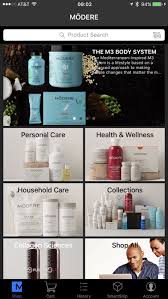 Your Decisions as Health Product Consumers
Your Decisions as Health Product Consumers
|
"Which one should I choose?" Think about a time when you might ask yourself this question. Probably practically everyday. The choices you make are important, especially when they concern your health. You need to learn how to make wise decisions about the health products and services you buy and use. Laws for the chemicals and ingredients in our everyday personal hygiene and beauty care products were first made in 1938. There have been NO new laws since 1938, read in the Boston Globe by Senator Ed Kennedy Above is the information from Senator Ed Kennedy who went before Congress in 1997, with information from the General Accounting Office stating that over 125 known carcinogens are in our daily personal hygiene and beauty products. "Over 800 chemicals available for use in cosmetics have been reported to the government as toxic substances." quoted from The National Institute of Occupational Safety and Health. How Can you Become a Wise Health Consumer? Perhaps you think there is nothing much to learn about buying products. Wise, shopping, however, is not always that simple. Many people have learned that the most costly products are not always the best ones. Questions you should ask before you buy are: What ingredients are in the product and what do they mean? Can I buy something better if I take more time to look and think about it? What Can Help you Become a Wise Health Consumer? Public Health Educators, Health Care Professionals, Cancer Prevention Educators, nurses, pharmacists, doctors can give you some advice about health care products. The library has a good source of materials that can help you be a smart shopper, such as Dr. Sam Epstein's Cancer Prevention Coalition, www.preventcancer.com, and Dr. Epstein's and David Steinman's, 1995 book,Safe Shoppers Bible, also Politics of Cancer Revisited by Dr. Samuel Epstein, 2001-02, "Unreasonable Risk", How to Avoid Cancer from Cosmetics and Personal Care Products, "What's In Your Milk", Cancer Gate, Winning the War on Cancer". Judy Vance's book "Beauty to Die For", another is Debra Lynn Dadd's book, "Non Toxic Homes", and Aubrey Organics books, "Beauty Without Cruelty", Stacy Malkin, Not Just a Pretty Face",all about the toxins in everyday personal hygiene and beauty products.". Also these resources including www.breastcanceraction.org, www.ewg.org, and FDA websites have some information about products, chemicals and their own ratings, many years behind the time. Material Safety Data Sheets list all the chemicals that are in our everyday products and their measure of safety or hazard. Almost every University has these sheets. News reports and scientific articles are also good sources. How Advertising can Influence You as a Consumer Advertisements are sources of information that help make people aware of different products or services. Some ads give helpful information about a product. Not all give you the information you need and want. Some give scientific claims and those can be checked out with the facts in writing. The product may or may not be a good choice for you. Some companies spend millions of dollars each year developing advertising to sell products. Often the price of a shampoo is higher simply because it comes in a fancy container, but in reality the cap on the bottle costs more than the shampoo itself. Once you are an informed consumer and you learn about the chemicals and ingredients in your products, then you can make informed decisions and wise choices. Protecting your health and skin should be of utmost importance to you and your family. |